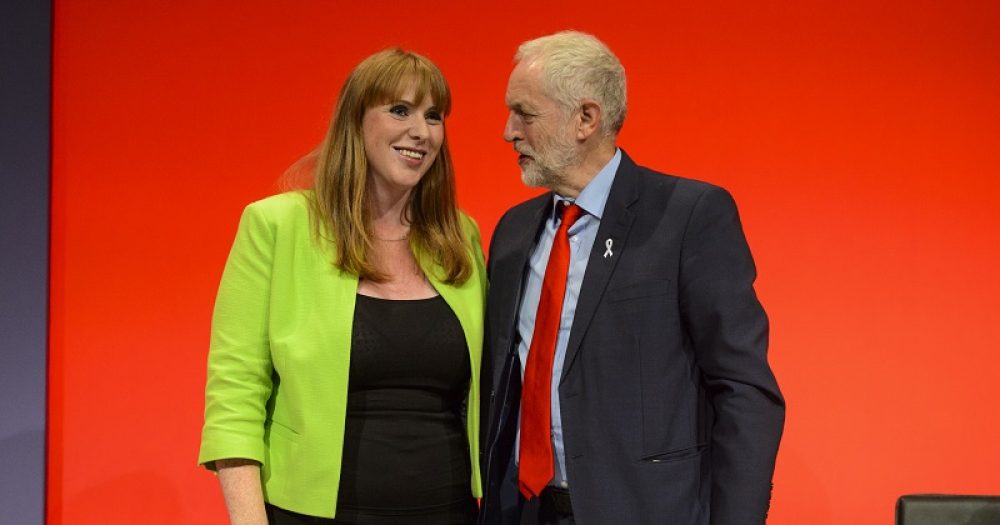Labour is set to announce sweeping reforms to England’s school system at its annual conference tomorrow.
In a speech, Angela Rayner will announce plans to curtail the freedoms of academy trusts and put councils in charge of opening new schools and deciding who can go to existing ones.
Here are all the policies she is set to announce.
1. Councils will be able to open schools
Rayner will pledge to end the free school programme and restore the right of councils to open and “commission” new schools.
The free schools programme has pretty much been the only way to open new schools since 2011, and councils have only been able to do so under very rare circumstances.
That will all change under Labour, which has pointed to concerns about the cost-effectiveness of the free schools programme.
The creation of new schools will be backed by £8.4 million in capital investment, which was announced in Labour’s 2017 general election manifesto.
2. No more forced academisation
Rayner will tomorrow pledge to “end the government’s programme of converting community schools into academies”.
This means local authority maintained schools will no longer have to become academies, even if they are rated ‘inadequate’ by Ofsted.
However, Labour is not planning to immediately convert all existing academies and free schools back into local authority-maintained schools, something that trade unionists and large parts of the Labour membership have been pushing for.
3. Councils can take back failing academies
Pending the outcome of another consultation on school regulation, Labour plans to maintain the existing “re-brokering” process for schools that need to leave their academy trust.
However, the big difference under Labour’s proposals will be that councils will be allowed to take academies that are being rebrokered back under their oversight.
4. A new generation of “co-operative schools”
These community-run schools were invented under the Blair government. At the policy’s peak, there were more than 500 of them in England, but numbers have dwindled since the introduction of the academies programme.
Labour wants to encourage more of these schools to open again, and will says it will allow parents and teachers who want to get involved in running schools to work with councils to do so.
5. Related-party transactions banned
Related-party transactions, which involve schools or academy trusts buying services from a commercial company with links to their staff or leaders, will end under Labour, Rayner will announce.
However, it is not clear if this will also apply to LA-maintained schools, which are also currently allowed to use RPTs, but have been less high-profile in their use of them than academies.
6. National pay rules and a cap on CEO salaries
Following on from Labour’s manifesto commitment last year to reintroduce the Schools Support Staff Negogiating Body and a national pay settlement for teachers, Rayner will set out plans tomorrow to implement “national pay rules” across all schools.
The details on this are vague, but one thing the proposal does include is a 20:1 ratio for CEO pay, meaning academy chiefs will only be allowed to earn 20 times the salary of their lowest-paid employee.
7. Councils will take charge of admissions
One of the features of the academies movement is that academies became their own “admissions authorities”. This means admissions arrangements can vary from school to school in the same area.
Under Labour, councils will once again become the admissions authorities for all schools, including academies.
8. Academies will be compelled to expand
At the moment, local authorities have no power to compel an academy in their area to expand.
This has been criticised by the Local Government Association, among others, because it means that although councils are responsible for school place planning, they cannot create those places themselves.
Labour wants to change this, and introduce such a power in town halls.
9. A new regulatory framework for schools
This is Labour’s end-game, a long-term ambition for the national education service.
This framework will have “community control at its heart and national rules applying to all schools, parents and communities given a meaningful say in decision making”.
Beyond that, the party isn’t ready to talk about the policy in any detail yet, and plans to consult on it.
In the meantime, councils will pick up the slack with their extra powers over academies.








All good stuff. But nothing about ending selection?
Oh dear. Once again politicians think they can improve education by changing structures. Rayner was to convert academies to community or somesuch. What teaching needs is NO MORE CHANGE for a bit.
To improve learning we need to improve teachers skills. Retention and CPD are vital.